While driving along the picturesque Qiandao Lake in east China's Zhejiang Province, one can make a delightful stop at Xiajiang, an idyllic village that served as the filming location for the Chinese anthology comedy film "My People, My Homeland," depicting Teacher Fan's final lesson to his students.
Historically, "Xiajiang" acquired its name during the Qing Dynasty under the reign of the Qianlong Emperor (1736–1795) and has retained this name to the present day. Despite its current nomenclature, the village traces its origins back over 800 years when its earliest settlers migrated from Sichuan Province in southwest China, endowing the place with a rich tapestry of history and culture.
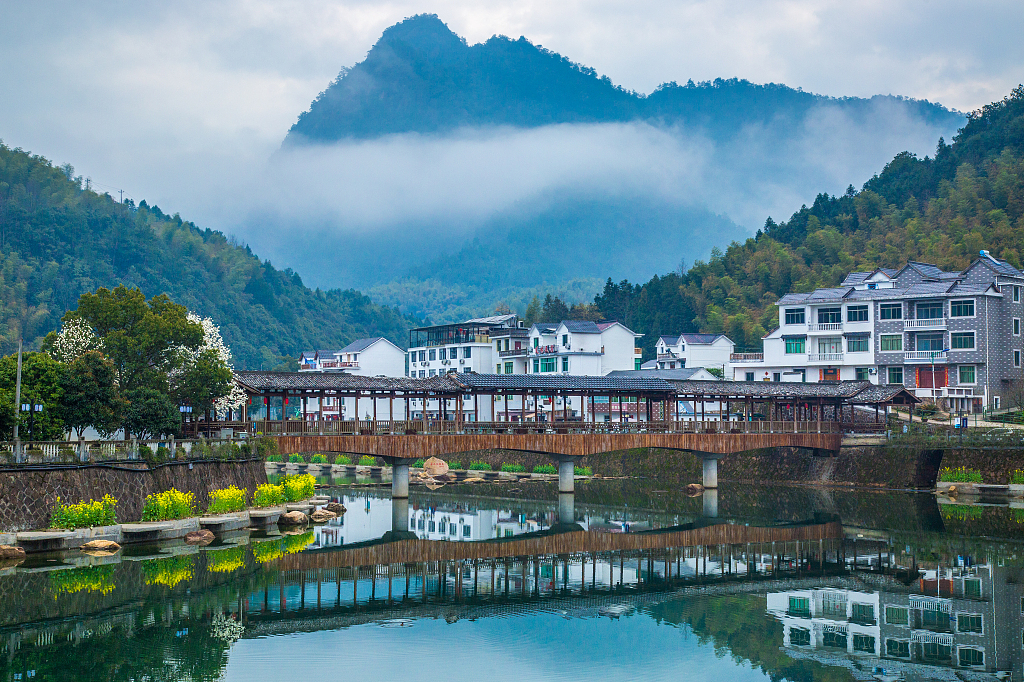
Xiajiang Village in Chun'an County, east China's Zhejiang Province. /CFP
Xiajiang Village in Chun'an County, east China's Zhejiang Province. /CFP
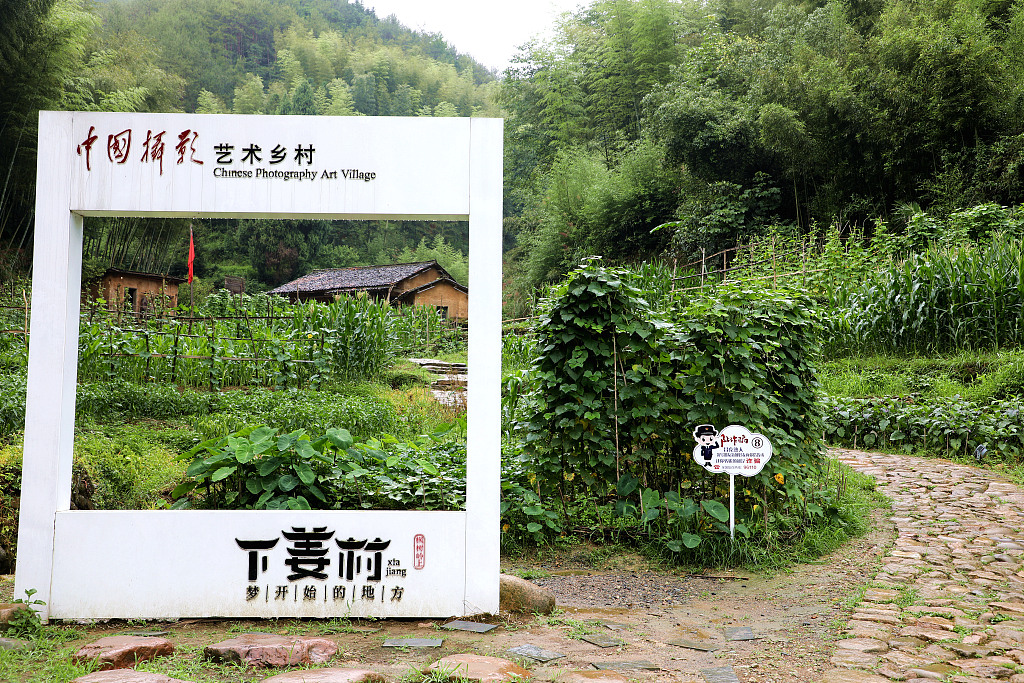
Xiajiang Village is the filming location for the Chinese anthology comedy film "My People, My Homeland." /CFP
Xiajiang Village is the filming location for the Chinese anthology comedy film "My People, My Homeland." /CFP
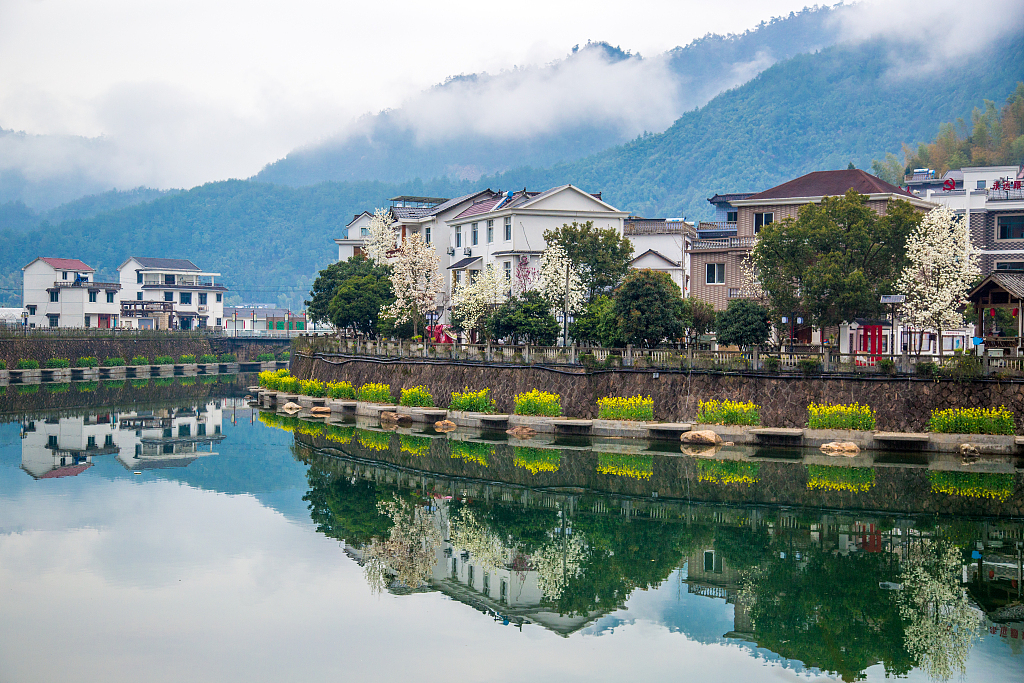
Xiajiang Village in Chun'an County, east China's Zhejiang Province. /CFP
Xiajiang Village in Chun'an County, east China's Zhejiang Province. /CFP
In the 1980s and 1990s, Xiajiang Village grappled with poverty and inadequate transportation. Restricted farmlands only sustained families for half the year, compelling villagers to resort to tree cutting for fuel or sale, leading to rampant deforestation.
Since 2004, the local government initiated the "green development" program to reclaim these denuded mountains. Residents commenced constructing biogas digesters and fostering organic agriculture. Addressing challenges related to rural water systems, barren slopes and agricultural pollution became a priority.
With years of effort, lucid waters and lush mountains reappeared. The forest in the village now occupies a land area of over 684 hectares, and the forest coverage rate has increased from 50 percent 20 years ago to 97 percent.
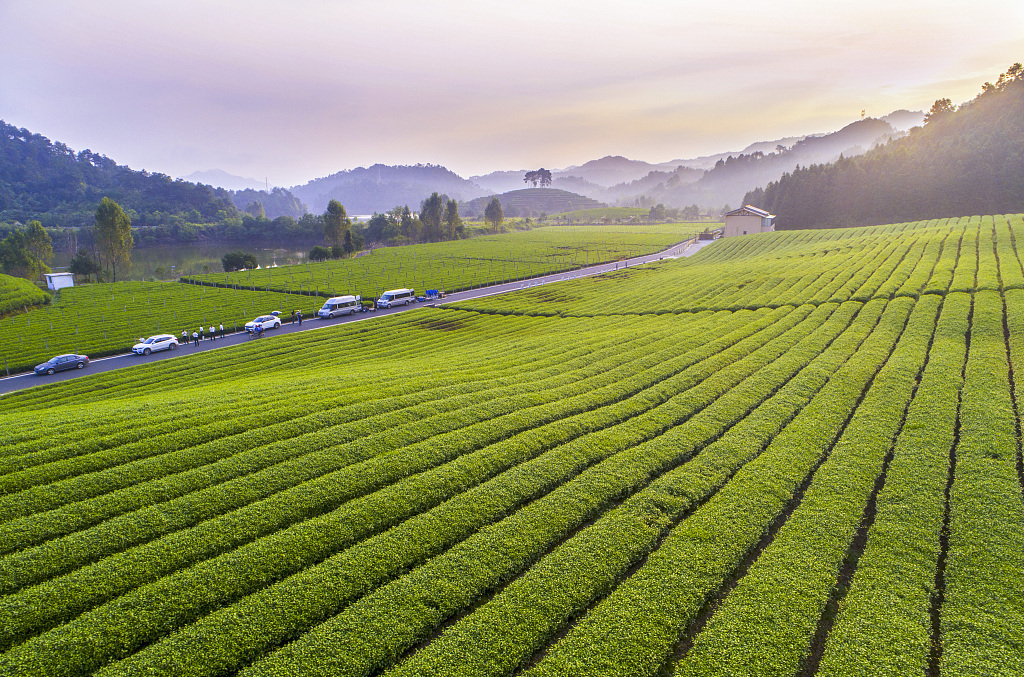
Tea garden in Xiajiang Village, east China's Zhejiang Province. /CFP
Tea garden in Xiajiang Village, east China's Zhejiang Province. /CFP
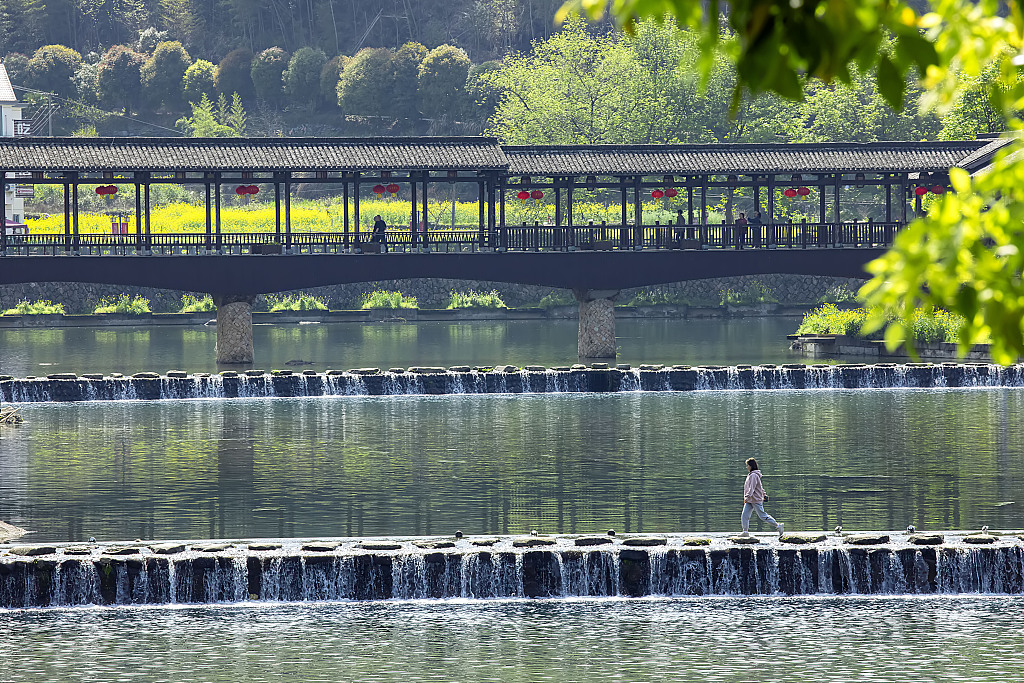
Lianxin bridge in Xiajiang Village, east China's Zhejiang Province. /CFP
Lianxin bridge in Xiajiang Village, east China's Zhejiang Province. /CFP
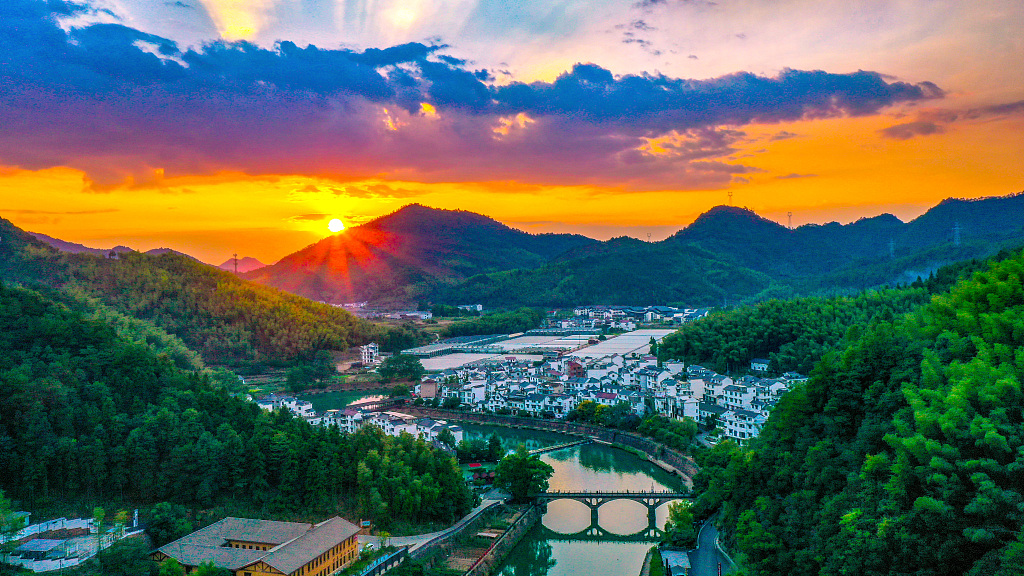
Xiajiang Village in Chun'an County, east China's Zhejiang Province. /CFP
Xiajiang Village in Chun'an County, east China's Zhejiang Province. /CFP
Xiajiang embraced extensive plantations of Chinese medicinal herbs like Lingzhi and cash crops such as grapes, strawberries and peaches. Visitors can revel in the experience of picking strawberries in June and grapes in August within the village orchards. Furthermore, the village established diverse business ventures, including adventure camps and painting studios, capitalizing on its breathtaking scenery.
The burgeoning tourism industry has significantly benefited villagers. In 2022, Xiajiang warmly greeted 409,500 visitors, generating a tourism revenue of 65.65 million yuan ($9 million). The per-capita disposable income for villagers soared to 48,818 yuan, marking a stark 17.7-fold increase from the 2002 income levels.








